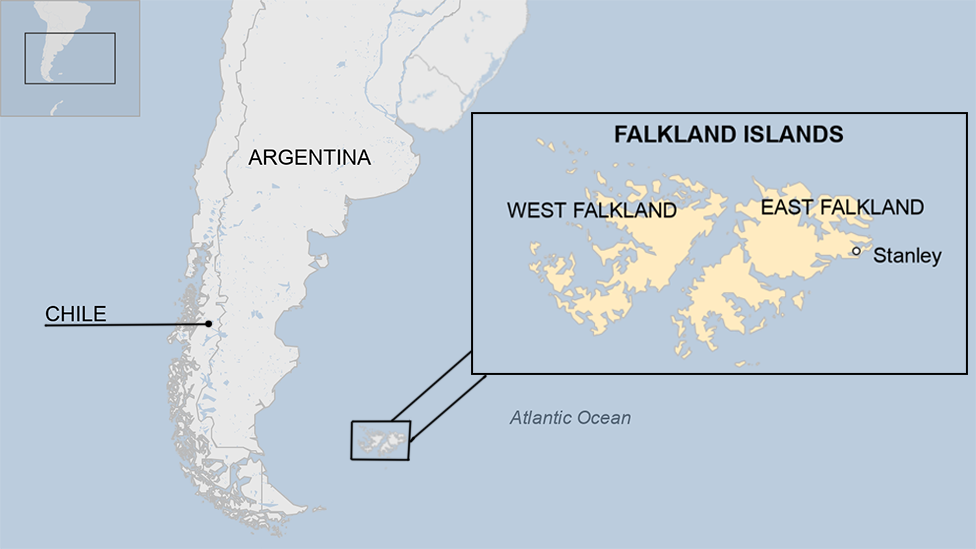Argentina country profile
- Published
This page is no longer being updated. It was last updated on 8 January 2024
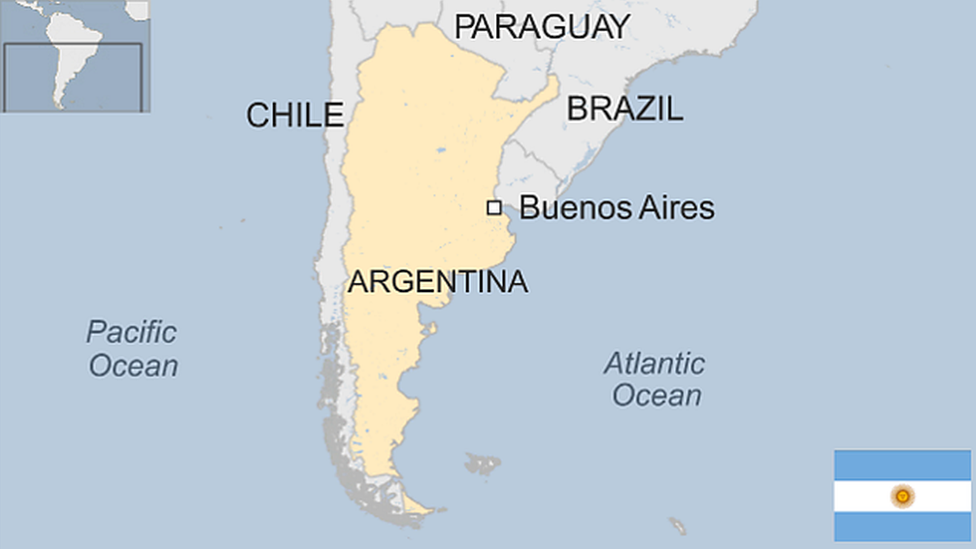
Argentina stretches 4,000km from its sub-tropical north to the sub-Antarctic south.
Its terrain includes part of the Andes mountain range, swamps, the plains of the Pampas and a long coastline.
Argentina is rich in resources, has a well-educated workforce, and is one of South America's largest economies. In cultural terms, it has given the world major writers like Jorge Luis Borges, and the tango dance phenomenon.
But its political life has been troubled by military coups and the vagaries of the populist Peronist movement, while the economy has been prey to dramatic booms and recessions.
See more country profiles, external - Profiles compiled by BBC Monitoring, external
ARGENTINE REPUBLIC: FACTS
Capital: Buenos Aires
Area: 2,780,400 sq km
Population: 47.3 million
Language: Spanish, plus Guaraní, Quechua, Qom, Mocoví, Wichí, Welsh
Life expectancy: 73 years (men) 80 years (women)
LEADER
President Javier Milei
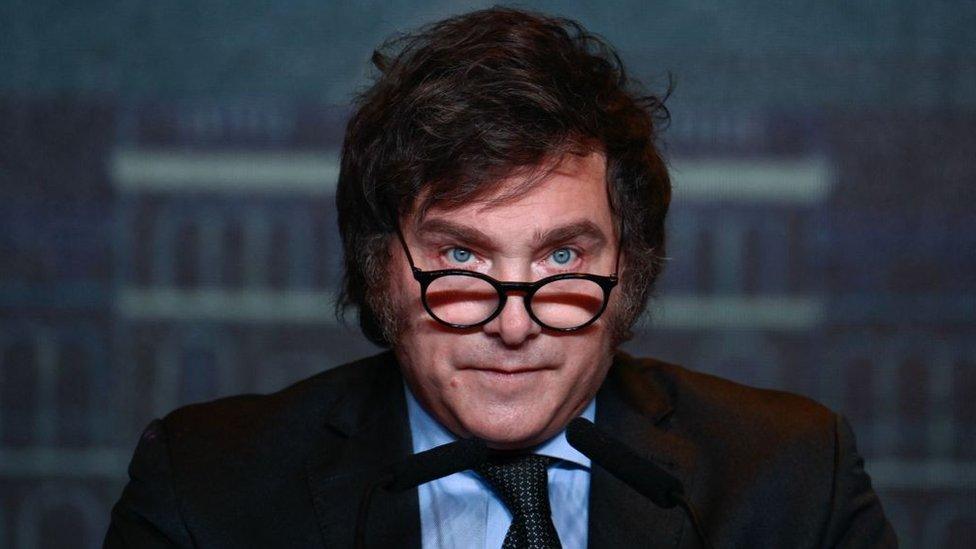
Far-right libertarian outsider Javier Milei won Argentina's presidential run-off in November 2023, defeating his rival, economy minister Sergio Massa.
The election came at a difficult time for Argentina with rising inflation and an economy in crisis. Mr Milei's proposals, which included "blowing up" the central bank, won support with voters desperate for change.
In his victory speech to supporters in Buenos Aires, Mr Milei said the election "begins the reconstruction of Argentina. Today begins the end of Argentina's decline. The model of decadence has come to an end. There is no way back.
"Argentina will return to its place in the world that it should never have lost. We are going to work shoulder-to-shoulder with all nations of the free world, to help build a better world."
Javier Milei has been likened to former US President Donald Trump and Brazilian ex-leader Jair Bolsonaro. He has little political experience but the fact that he is a political outsider was part of his appeal for many voters.
His talk of introducing the US dollar as the country's official currency was met with applause by his supporters. Many economists though say it may spell financial disaster.
In a country where annual inflation is now over 140% and two in five people live in poverty, his win proves that Argentines are fed up with traditional politics and economic disaster.
MEDIA

Argentine readers are among Latin America's most voracious newspaper consumers
Argentina has one of South America's biggest media markets.
TV is the dominant medium and the main networks are operated by large privately-owned companies.
The media are generally free from official censorship.
The country has one of the region's highest rates of internet use. Facebook is the top social platform.
Read full media profile
TIMELINE

The legacy of President Juan Peron and his iconic wife Evita is still controversial
Some key dates in the history of Argentina:
16th Century - Spanish colonisation of the River Plate coast and inland areas begins.
1776 - Spain establishes separate Viceroyalty of the River Plate.
1810 - Viceroy overthrown, launching the war of independence.
1816 - Independence declared, followed by decades of turmoil, attempted foreign intervention, and civil war between centralist and federalist forces.
1861 - State of Buenos Aires finally reintegrated with Argentine Confederation to form a united country.
1880 - Start of decades of liberal economic and immigration policies that lead to rapid income and population growth as well as progressive education and social policies.
1916-22 - President Hipolito Yrigoyen enacts a series of progressive social reforms. He is re-elected for another stint as president in 1928.
1930 - Great Depression hits Argentina hard as demand for its agricultural exports dries up. Armed forces seize power in coup, setting a precedent for military interventions that only ends in the 1980s.
1932 - Civilian rule is restored but economic decline continues.
1943 - Nationalist army officers seize power in protest at stagnation and electoral fraud. One of these is Colonel Juan Peron.
1946 - Juan Peron wins presidential election on a promise of higher wages and social security. His wife, Eva 'Evita' Peron is put in charge of labour relations.
1949 - A new constitution strengthens the power of the president. Opponents are imprisoned, independent newspapers are suppressed.
1951 - Peron is re-elected with a huge majority, but his support begins to decline after Evita dies the following year.
1955 - Violent military uprisings drive President Peron to resign and go into exile.
1966 - General Juan Carlos Ongania seizes power after years of unstable civilian governments.
1973 - The Peronist party wins elections in March, Peron becomes president in September.
1974 - Peron dies in July. His third wife, Isabel, succeeds him. Terrorism from right and left escalates, leaving hundreds dead amid strikes, protests and rampant inflation.
1976 - Armed forces seize power and launch 'Dirty War' in which thousands are killed on suspicion of left-wing sympathies.
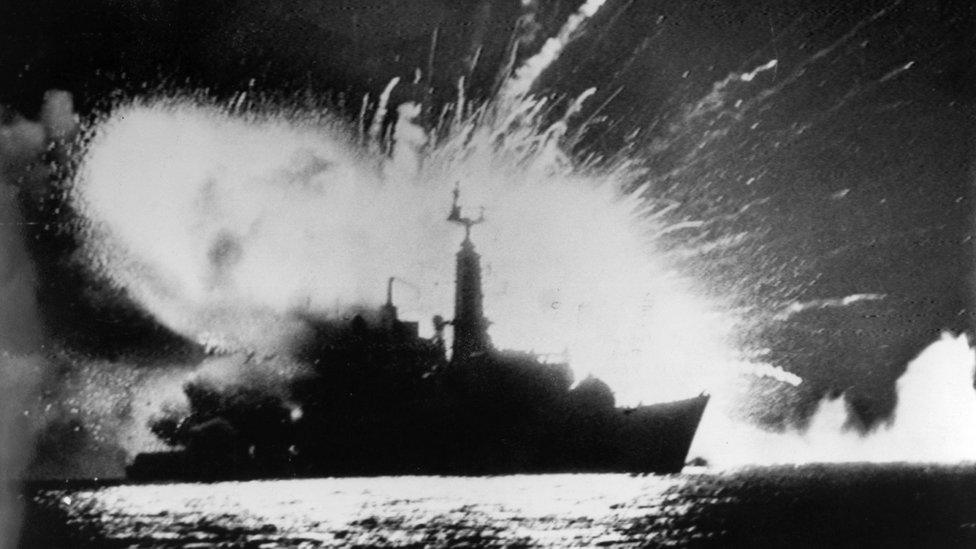
Argentina went to war with Britain over the Falklands Islands, which it still claims
1982 - Argentine military invade British Falkland Islands in South Atlantic, but are expelled months later by British armed forces after bloody battles.
1983 - Junta, reeling from Falklands fiasco, restores democracy. Raul Alfonsin becomes president.
1990 - Full diplomatic relations with the United Kingdom are restored, although Argentina maintains claim to Falklands.
1994 - A Jewish community centre in Buenos Aires is bombed, 86 people are killed, and more than 200 injured in Argentina's worst terrorist atrocity. Prosecutors accuse Iran and its Lebanese Hezbollah allies of responsibility.
2001 - Economic crisis. Argentina makes history with the largest ever sovereign debt default of more than $80bn (£42bn). Peronist government of President Nestor Kirchner restores stability.
2005 - Supreme Court approves repeal of amnesty law that had protected former military officers suspected of human rights abuses during military rule in 1976-1983. Congress voted to scrap the amnesty in 2003.
2013 - Argentina becomes the first country to be censured by the International Monetary Fund for not providing accurate data on inflation and economic growth.
Falkland Islanders vote overwhelmingly in favour of remaining a British overseas territory.
Cardinal Jorge Mario Bergoglio of Buenos Aires is chosen as Pope. He is the first Latin American to lead the Roman Catholic Church, and takes the name of Francis.
2014 - Argentina defaults on its international debt for the second time in 13 years.
2015 - Conservative President Mauricio Macri launches programme of market reforms to reign in state role in economy.
2019 - Peronist candidate Alberto Fernández wins the presidential election, becoming the first challenger to oust a sitting president.
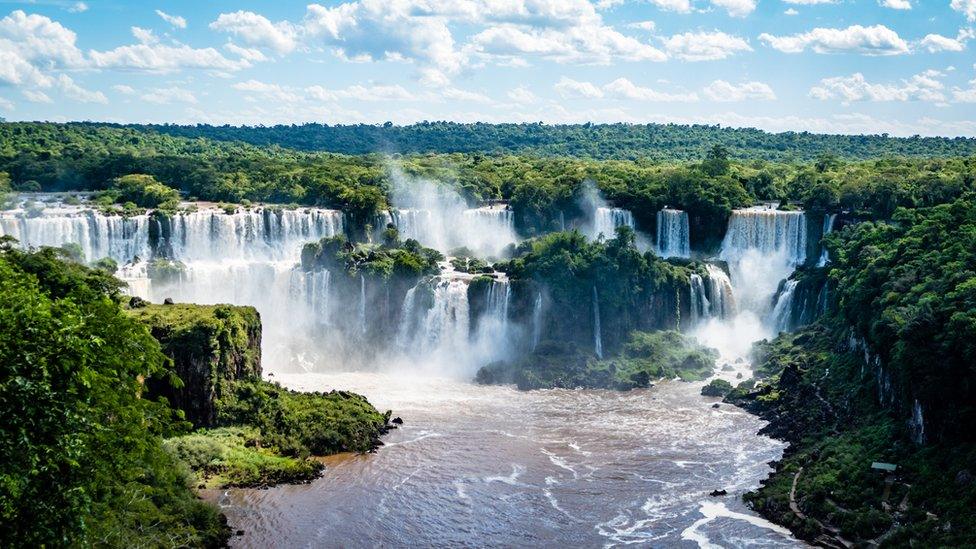
The Iguazu Falls, on the border with Brazil and Paraguay, are the largest series of waterfalls in the world
- Published11 December 2023
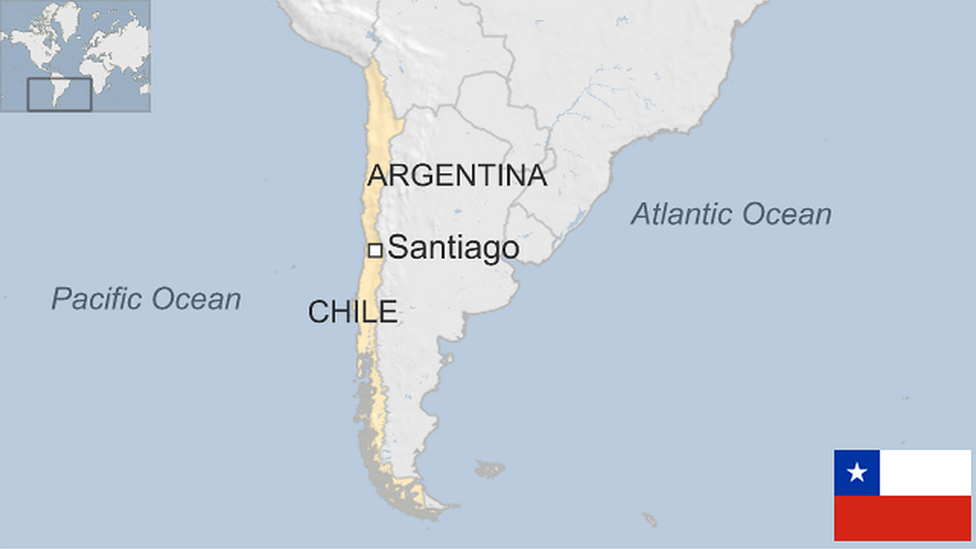
- Published7 February 2023
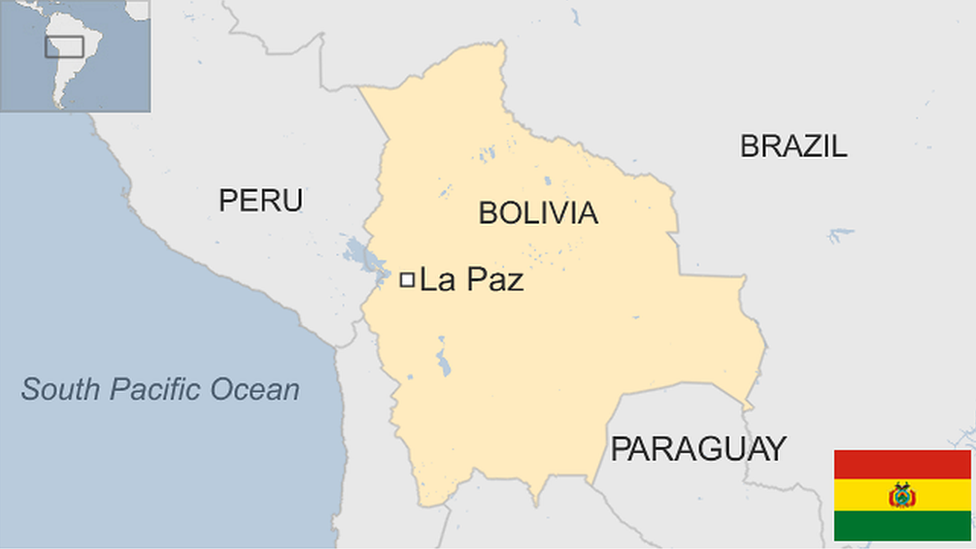
- Published22 August 2023
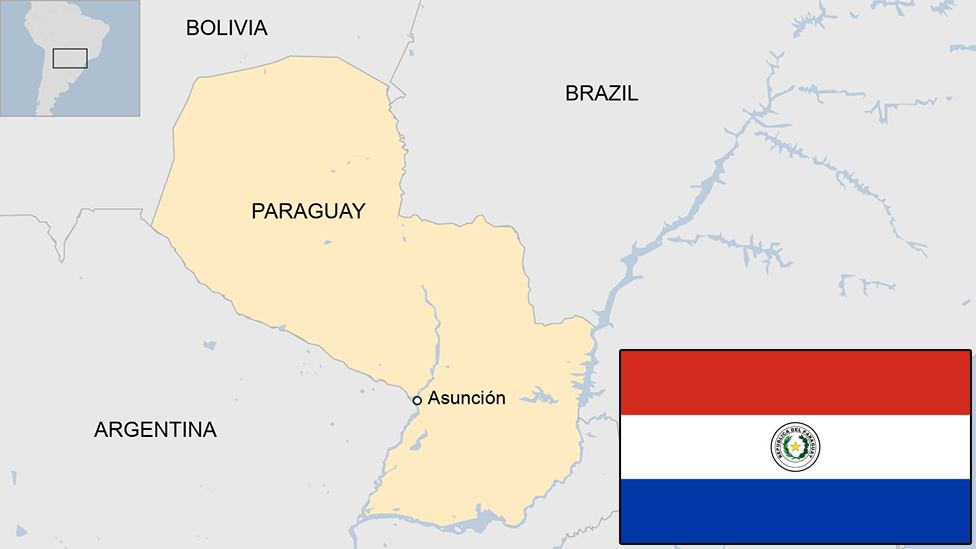
- Published2 June 2023
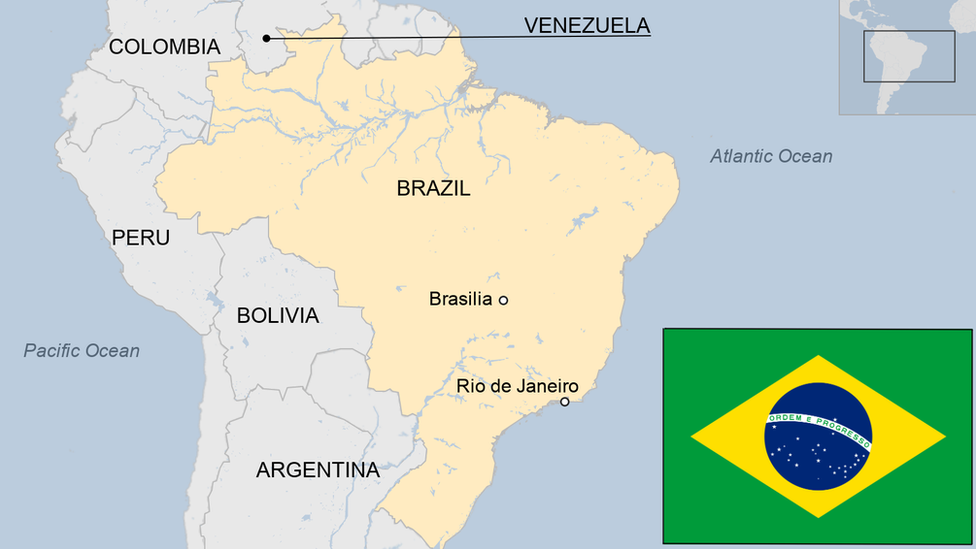
- Published25 November 2024

- Published7 September 2023
